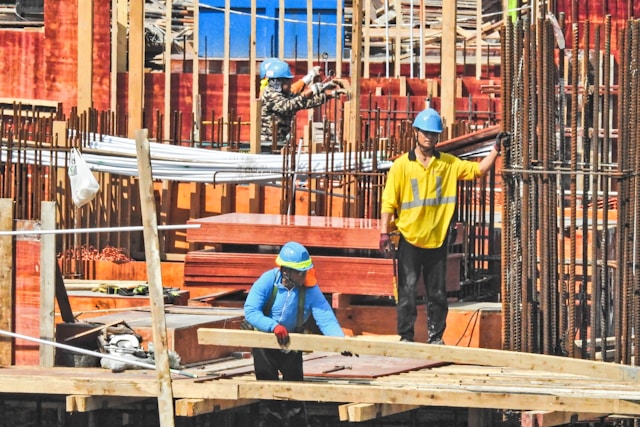What the 485 visa is
The Temporary Graduate (subclass 485) visa lets recent international graduates stay in Australia to live, work and study after they finish eligible Australian study. From 1 July 2024, the program was reshaped into two streams with updated rules. Late-2024 amendments then clarified how certain awards (like Graduate Diplomas) can be counted in the higher-education stream.
The qualification you rely on determines your stream — you can’t pick and choose based on your broader study history.

Stream 1: Post-Higher Education Work (PHEW)
For graduates who rely on a bachelor, master or doctoral degree awarded in Australia. Graduate Certificates are not “degree-level” for this stream. Graduate Diplomas can sometimes be counted in limited “topping up” scenarios (explained below).
- Age limit: 35 or under at time of application. Still eligible up to 50 if you’re using a masters (research) or PhD, or if you hold a Hong Kong (including British National Overseas (BNO)) passport.
- Stay periods: Bachelor degree (incl. honours) up to 2 years; Masters (coursework/extended) up to 2 years; Masters (research) and PhD up to 3 years. Graduate Diplomas usually 2 years, but longer if your prior study would have attracted a longer stay. Hong Kong (and BNO passport holders): up to 5 years. Indian nationals: 2–4 years depending on qualification.
Stream 2: Post-Vocational Education Work (PVEW)
For graduates who rely on an Australian associate degree, diploma or trade qualification. This stream is tied to skilled occupations, and some applicants will also need a provisional skills assessment that matches the nominated occupation.
- Age limit: 35 or under at time of application. Still eligible up to 50 with a Hong Kong or BNO passport.
- Stay periods: Usually up to 18 months. Hong Kong and BNO passport holders may stay up to 5 years.
Second 485 visa (PHEW only)
There is also a second Post-Higher Education Work stream for those who studied and lived in designated regional areas. From July 2024 the maximum eligible age is 35, but still up to 50 if you relied on a masters (research) or PhD, or hold a Hong Kong/BNO passport. The replacement stream has been closed.
What you need before you can apply
- Completion letter and final transcript for your eligible CRICOS-registered course(s).
- Evidence you held a Student visa within the last six months.
- English language requirements met before lodgement (valid test report if you’re using a test).
- Passport bio page.
- AFP National Police Check receipt (issued within the last 12 months).
- Appropriate health cover (OSHC or equivalent).
Post-Higher Education Work (PHEW) — Do I need a skills assessment?
Generally, no. Eligibility is anchored to your Australian degree-level award. Your focus is on proving completion and showing you meet the study-duration rule.
Post-Vocational Education Work (PVEW) — Do I need a skills assessment?
Often yes. Many applicants must nominate an occupation and provide a provisional skills assessment aligned to that occupation (requirements vary by field and assessing authority).
Can I “top up” my qualification to meet the 92 weeks?
Sometimes. If your CRICOS-registered study totals fewer than 92 weeks, you can add eligible higher-education qualifications together to reach the threshold. The Department counts CRICOS weeks, and you can’t double-count overlaps.
- In PHEW, a Graduate Diploma can be used to “top up” only if it was completed in Australia, immediately after your Australian bachelor/master/PhD, and in a closely related field.
- A Graduate Certificate can NOT be used for this purpose.
- A Graduate Diploma won’t count if it’s unrelated, not immediately consecutive, or completed outside Australia.
Example: a 1.5-year master’s (registered for <92 weeks) plus a closely related Graduate Diploma completed immediately after in Australia can be combined to reach 92+ weeks. Your application remains anchored to the master’s-level award; the Graduate Diploma simply gets you over the line.

The bottom line
Pick the correct stream, line up your documents early, and don’t assume any “top up” will work — your additional study must meet the specific immediacy and related-field tests, and only CRICOS weeks count. Age caps, stay periods and passport concessions (Hong Kong, BNO, Indian nationals) are also critical. A quick eligibility check before you enrol or lodge can prevent an avoidable refusal.
We recommend speaking with a registered migration agent or immigration lawyer, such as those at Leyton Stone Law, to assess your eligibility and plan the right sequence for your situation.
How Leyton Stone Law can help
We can review your study record, confirm the correct stream, check whether your course sequence meets the 92-week rule, and advise on whether a Graduate Diploma “topping up” strategy will satisfy the late-2024 settings. We then prepare a clean, decision-ready application with English language requirements evidence, police/health documentation and all required forms.
Disclaimer:
The information in this article is general in nature and does not constitute legal advice. Immigration matters can be complex — you should seek advice from a registered migration agent or immigration lawyer about your individual circumstances before making any decision.
If you would like tailored advice, Leyton Stone Law can assess your eligibility, advise on strategy, and manage your application through to lodgement.
